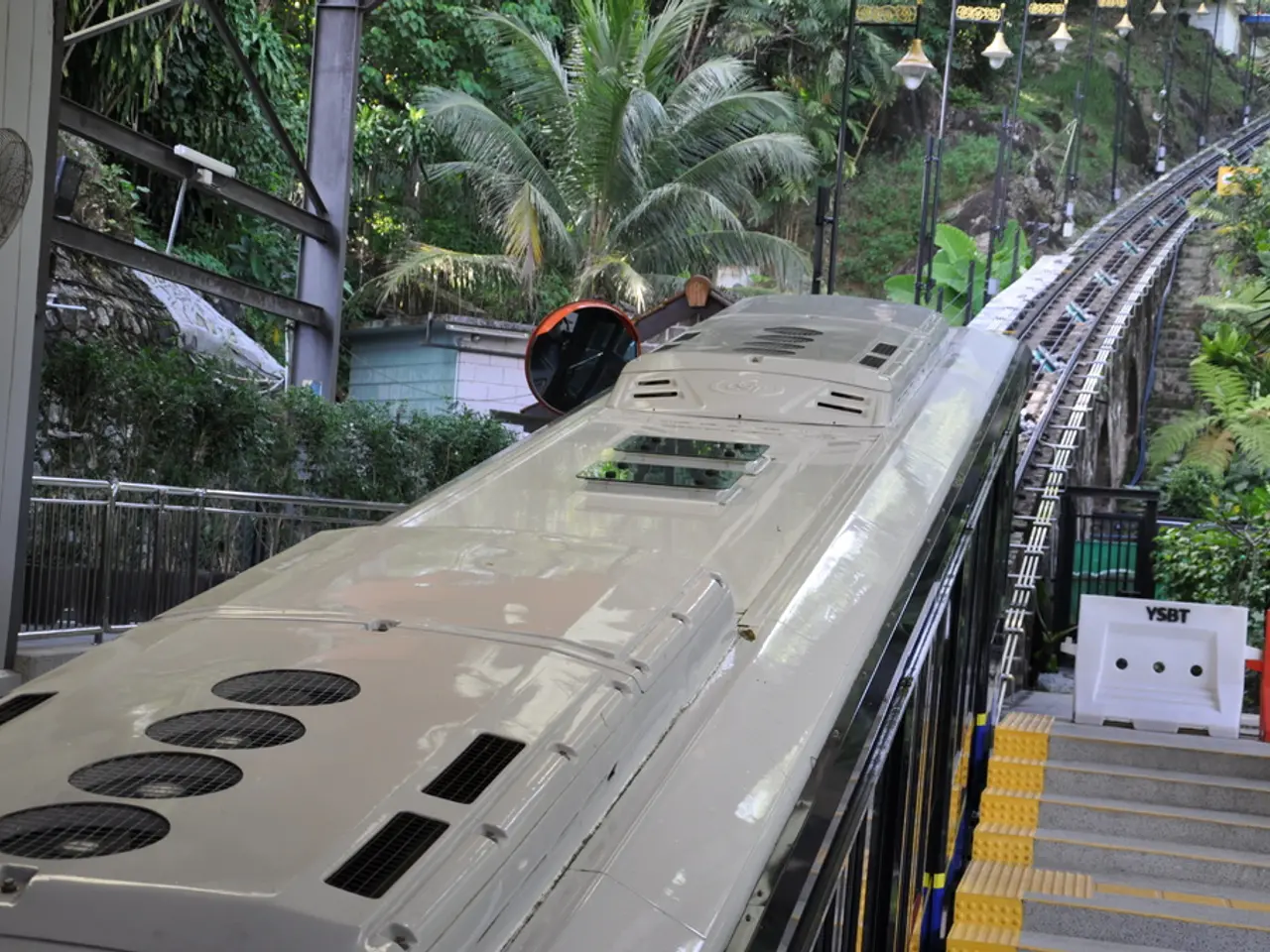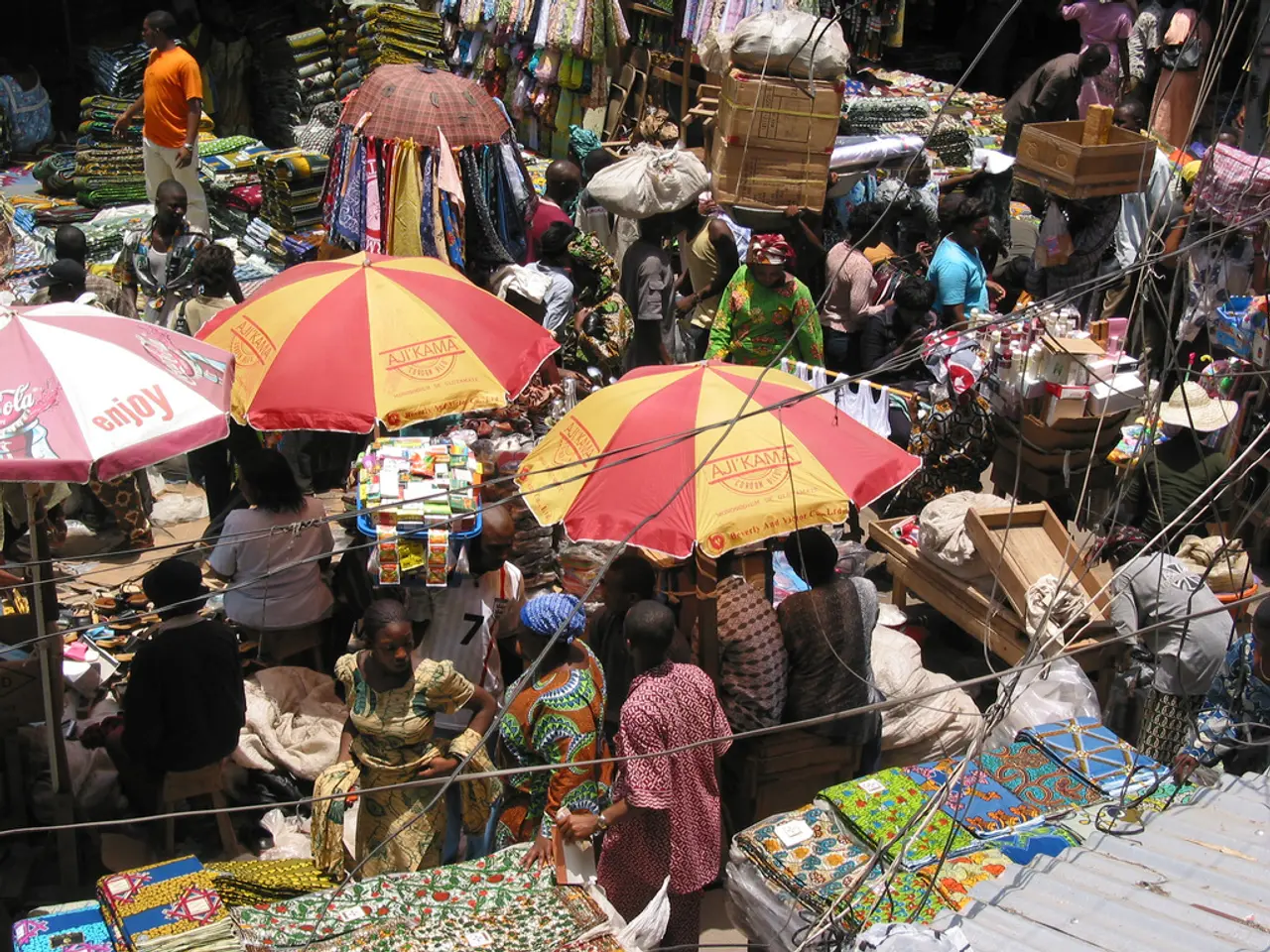City's Prime Minister encourages city to spearhead the nation in five key areas of development
In a significant move, Prime Minister Pham Minh Chinh has requested Ho Chi Minh City to spearhead Vietnam's development, focusing on five key strategic areas. These areas include establishing the city as a regional and international economic hub, promoting innovation-driven growth, modern infrastructure, improved governance, environmental sustainability, and social development.
The development of an international financial center in Ho Chi Minh City by the end of 2025 is a core component of this vision. This financial center, intended to be more than just a financial district, will operate as a testing ground for advanced financial policies, aiming to implement progressive, internationally-aligned policies and create a legal environment supportive of future financial models such as digital assets, carbon credits, digital banking, and commodities exchanges.
The international financial center will be a specially designed mechanism with its own legal framework and administrative system. Preferential policies on taxes, land, and labor are part of the strategy to attract and retain investment, enabling the city to pioneer new financial services and innovations in Southeast Asia’s largest megacity.
Prime Minister Pham Minh Chinh emphasized that these efforts should be underpinned by broader governance reform and innovative thinking consistent with Vietnam’s ambitious development goals for 2030 and 2045. This includes building a socialist-oriented market economy focused on self-reliance, integration into the global economy, and sustainable development with the people as the central resource.
Ho Chi Minh City, with a population of 14 million and a GRDP of VND2.72 quadrillion (US$113 billion), has already been reformed into a megacity. In the first seven months, the city attracted foreign direct investment approximating US$5 billion, up 17.7%.
The southeastern region, consisting of Ho Chi Minh City, Dong Nai province, and Tay Ninh province, has a combined population of nearly 21 million. The combined GRDP of the southeastern region is over US$150 billion, making it a decisive growth pole for national development and the country’s economic locomotive.
Prime Minister Pham Minh Chinh has also called for studying the Loc Ninh - Bien Hoa railway connecting Ca My port and Cai Gioa port, implementing the HCM City - My Thuat route through public-private partnerships, and considering the construction of underground metro or urban railway linking Tan Son Nhat and Long Thanh airports.
The Prime Minister acknowledged the city's initial achievements in areas such as resolving bottlenecks, ensuring social welfare, using the municipal budget for inter-regional and expressway projects, and mobilizing resources for development. He urged Ho Chi Minh City to demonstrate stronger determination and greater efforts, focusing on digital transformation, scientific-technological development, startup and innovation promotion, and smart city development.
The PM also asked Ho Chi Minh City to attract investment in high-tech and green industries, expand the financial, service, and tourism sectors, develop high-quality human resources, and advance social welfare policies. He has requested accelerated progress on strategic projects such as HCM City's Ring Road 4, Cai Gioa international transshipment port, Long Thanh International Airport, and key inter-regional expressways like Gia Nghia - Cho Thanh and HCM City - Moc Bai.
Prime Minister Pham Minh Chinh made this request during the sixth meeting of the Coordinating Council for the Southeastern Region and the fourth meeting of the Steering Board for implementing the National Assembly’s Resolution 98/2023/QH15, on August 2. He demanded proactive moves to cope with natural disasters and climate change.
- The Prime Minister's vision for Ho Chi Minh City includes the development of an international financial center, which will serve as a testing ground for progressive financial policies, aligning with international standards and supporting future financial models such as digital assets, carbon credits, digital banking, and commodities exchanges.
- In line with Vietnam's development goals for 2030 and 2045, the government is focusing on building a socialist-oriented market economy in Ho Chi Minh City, emphasizing self-reliance, global integration, and sustainable development.
- Understanding the importance of climate change, Prime Minister Pham Minh Chinh demanded proactive measures to cope with natural disasters and climate change in the Ho Chi Minh City area.
- Recognizing the city's growth and initial achievements, the Prime Minister has requested Ho Chi Minh City to further its efforts in digital transformation, scientific-technological development, startup and innovation promotion, and smart city development, while also attracting investment in high-tech and green industries.








